HIV
Latest

Anthony Fauci's enduring impact on the AIDS crisis
With the news that Dr Anthony Fauci will leave his role as Director of the NIAID in December, we take a look at his tireless work in the HIV/AIDS crisis, America's other pandemic.
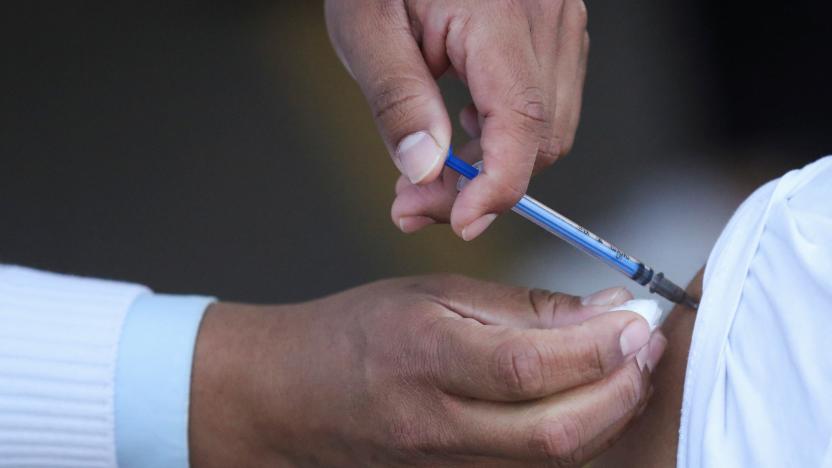
Moderna begins early-stage trials of mRNA-based HIV vaccine
Moderna has begun early-stage clinical trials of an HIV mRNA vaccine,

Scientist who edited babies' genes sentenced to three years in prison
Last year, a Stanford-trained scientist stunned the world by revealing that he had created the first genetically-edited babies using the CRISPR/Cas9 tool.
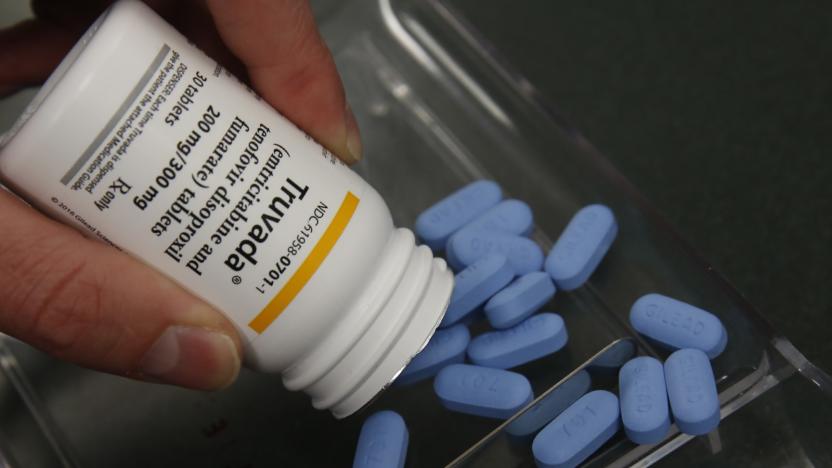
Ads on Facebook are spreading misinformation about anti-HIV drugs
While many are focused on Facebook's unwillingness to curb false political ads, there appears to be another misinformation campaign going unchecked. The Guardian and GLAAD have noted that personal injury law firms continue to run Facebook ads making false claims about the risks of Truvada, a drug meant to reduce the likelihood of HIV transmission. Some float the specters of bone loss and kidney damage despite evidence that the risks of either are "not clinically significant," according to the San Francisco AIDS Foundation.

Strawberry-flavored HIV medicine could save thousands of children
There are roughly 80,000 babies and toddlers who die of AIDS every year, and that's partly due to the difficulty of administering the medicine. It can be extremely difficult for a toddler to swallow a pill or a foul-tasting syrup with alcohol. Cipla may have a much better solution. It's introducing a new anti-HIV drug, Quadrimune, whose strawberry-flavored granules are much easier to swallow. While it comes in capsules, parents can make it more palatable by sprinkling the contents on soft food or in drinks.

A generic HIV prevention drug should arrive in 2021
Pharmaceutical giant Gilead has agreed to release its exclusive patent to manufacture and sell the HIV-prevention drug Truvada. This means we could see a generic version of the pre-exposure prophylaxis (or PrEP) on the market earlier than expected. The news is seen as a win for individuals who may be at a greater risk of contracting HIV.

Stem cell transplant offers hope for an HIV cure
There appears to be more than one promising sign in the quest for an HIV cure. Researchers have given a London patient a bone marrow stem cell transplant that has left him HIV-free for the past 18 months. As the donor has a very rare genetic mutation (CCR5 delta 32) that makes them HIV-resistant, the stem cells sent the HIV into remission with only a "mild reaction" from the treatment. It's a positive sign, and it suggests that the stem cell transplants that 'cured' Tim Brown in 2007 weren't just flukes.
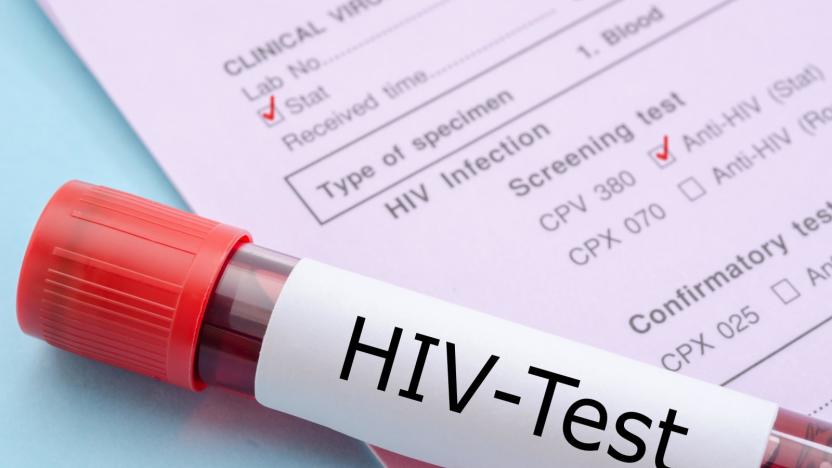
HIV vaccine delivers promising results in human tests
A Harvard-led team of scientists has made important progress in the quest to prevent HIV infections. They've had early success testing a multi-strain vaccine in humans -- everyone who received the drug produced at least some kind of anti-HIV immune response, with at least 80 percent producing more advanced responses. The researchers also found that the same vaccine protected 67 percent of rhesus monkeys against simian-human immunodeficiency virus, which suggests it might be effective against HIV.

YouTube ran ads on AIDS conspiracy theory videos
YouTube has run into issues in the past for showing ads before inappropriate videos. In some cases it has caused companies to pull their ads from the platform and at least one firm has put together its own algorithm to identify YouTube channels on which it's safe to advertise. However, though YouTube has changed its guidelines and hired more human moderators, advertisements are still showing up alongside questionable content. Now, Adweek reports, ads from major companies are appearing before videos featuring fake medical news such as AIDS conspiracy theories.

Grindr reportedly shared HIV statuses with other companies
Grindr's privacy issues may extend beyond access to data with a login. BuzzFeed News and Norwegian non-profit SINTEF report that Grindr has been sharing its users' HIV statuses (including their last test date) with two app optimization companies, Apptimize and Localytics. As that data is attached to info like email addresses, GPS info and phone IDs, it's possible for an intruder to link specific people (beyond just their public profiles) to their health info.
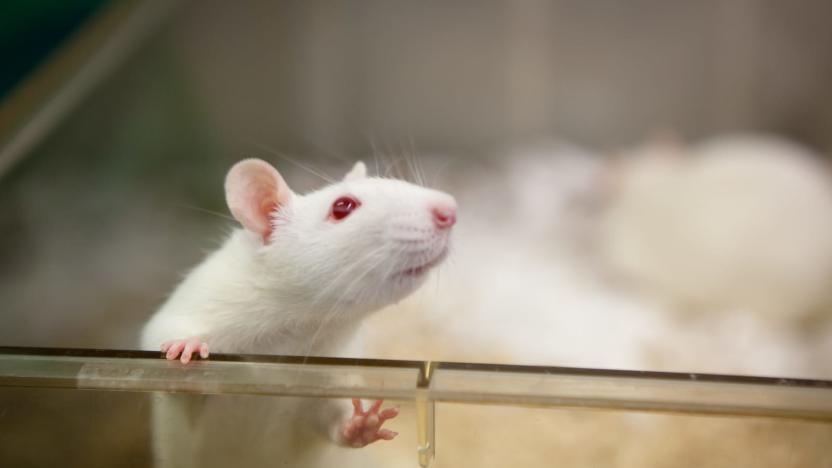
Scientists use gene editing to eliminate HIV DNA in live mice
A team of scientists have snipped away HIV DNA from the genome of live mice using a CRISPR system, and the rodents lived to (kinda) tell the tale. It's still much too early to call the method a possible cure, but the fact that it worked on a living animal opens up a lot of possibilities. Will it work on other diseases, like cancer? Maybe, but that's something scientists have to look into. These researchers headed by neurovirologist Kamel Khalili have been focusing on the use of the gene-editing technique to eliminate HIV for years. They successfully excised HIV DNA in live mice last year, but this round is a lot more thorough.
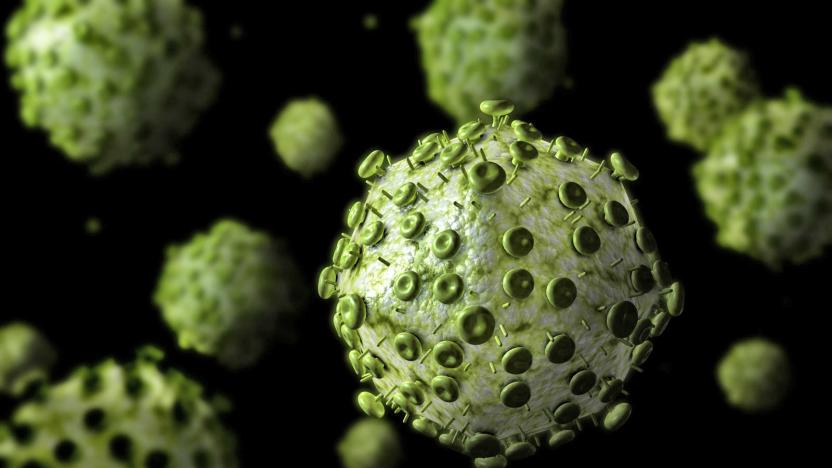
HIV breakthrough may help scientists kill sleeping virus cells
AIDS patients must endure a lifetime of drugs because the virus conceals itself in the immune system and reactivates with a vengeance once the treatment stops. However, French scientists have discovered a marker that makes it possible to identify dormant, HIV-infected T-cells from healthy ones. That could lead to drugs that target those "reservoir cells," eradicating the virus completely and curing the patient.

Bill and Melinda Gates back an implant that could prevent HIV
You don't have to wait until after an infection to fight HIV. A technique known as pre-exposure prophylaxis has you taking preemptive medicine on a regular basis, greatly reducing the chances that HIV will take root in the first place. Needless to say, such a treatment could change the world if done well -- and the Bill & Melinda Gates Foundation wants to make sure that it's as easy as possible. They're investing $140 million in an Intarcia Therapeutics program that will develop an under-the-skin pump implant (you're looking at it above) that will deliver a steady stream of anti-HIV drugs in 6- or 12-month batches. Instead of having to remember to take medicine every day, you'd only have to top up once or twice a year.

Scientists developed a USB stick that can perform an HIV test
When is comes to HIV tests, a drop of blood and a USB stick may be all patients need in the near future. Scientists at the Imperial College London developed a device with the help of medical testing company DNA Electronics that detects HIV levels in the bloodstream and creates a signal that can be read using a computer or handheld gadget. The disposable testing units could be used to help HIV patients monitor their treatment as well as improve how doctors manage the virus in remote locations.

Science exonerates HIV's 'Patient 0'
For years, many have pinned HIV's US outbreak on one man: a flight attendant, nicknamed Patient 0, whose travels and sexual activity allegedly helped spread the virus quickly. However, there's now evidence to suggest that he was little more than a scapegoat. A team of American and British researchers has used genetic reconstruction to narrow down the American arrival of HIV to between 1970 and 1971, before Patient 0 was even having sex.
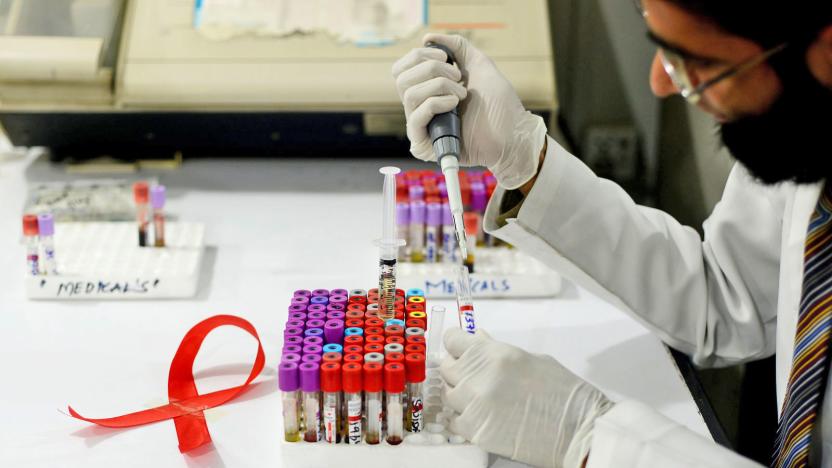
HIV researchers edge closer to a cure
Most recent news on the fight against HIV has focused on preventative medicine and suppression, but British scientists might be inching toward an honest-to-goodness cure. A 44-year-old social worker in London appears to be completely free of the virus after undergoing an experimental "kick and kill" treatment as part of a trial. The patient first took a vaccine to help his immune system detect infected cells, and then took Vorinostat to activate dormant infected cells that normally don't get caught. After that, it was just a matter of letting the healthy parts of the immune system kill off all the HIV, theoretically eliminating any chance of the virus coming back.

Researchers want to block HIV with a 'therapeutic' virus
Despite the best efforts to date, a vaccine for HIV remains beyond our reach. It seems every time researchers get close, the virus mutates to stay a step ahead, creating a biological arms race. But a team of scientists at the University of Texas believe they may have found a way to hobble HIV and drastically reduce its virulence. They want to infect susceptible cells with a "good" virus first, one that will effectively immunize them against HIV.

Test-driving LELO's 'condom of the future'
I'm not proud of it. As someone who's at high risk for HIV infection, I have a spotty relationship with safe sex. I came of age in the '90s, when rappers like Salt-N-Pepa and Lisa "Left Eye" Lopes frequently spit rhymes about rubbers. I volunteered in a South African AIDS orphanage in the early 2000s and saw first-hand the effects of unprotected sex. I even had my own close brush with HIV infection nearly 10 years ago. And yet, I don't always do the right thing. NSFW Warning: This story may contain links to and descriptions or images of explicit sexual acts.
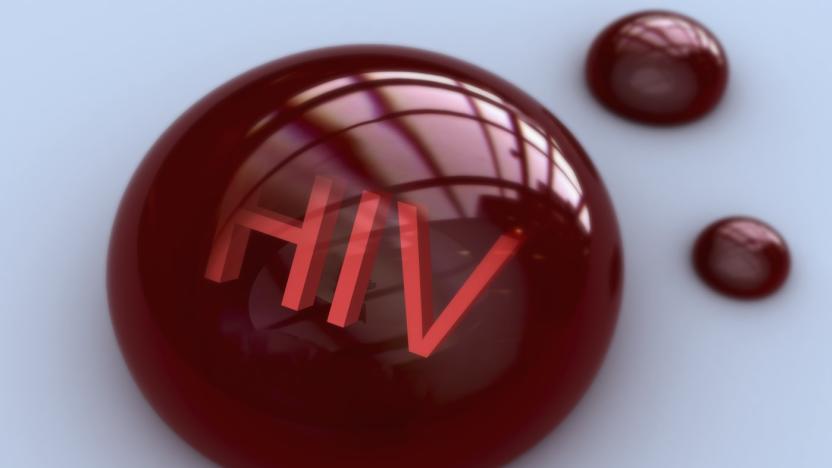
HIV antibodies guarded monkeys from the disease for six months
There's no known vaccine for HIV, but researchers have a temporary preventative treatment in the works. A team of American and German scientists tested a quartet of injectable antibodies in monkeys that staved off the human immunodeficiency virus for up to six months, according to a paper published in Nature. The antibodies were harvested from HIV-infected people, cleaned and then given to macaques before they were dosed with a strain of simian HIV.
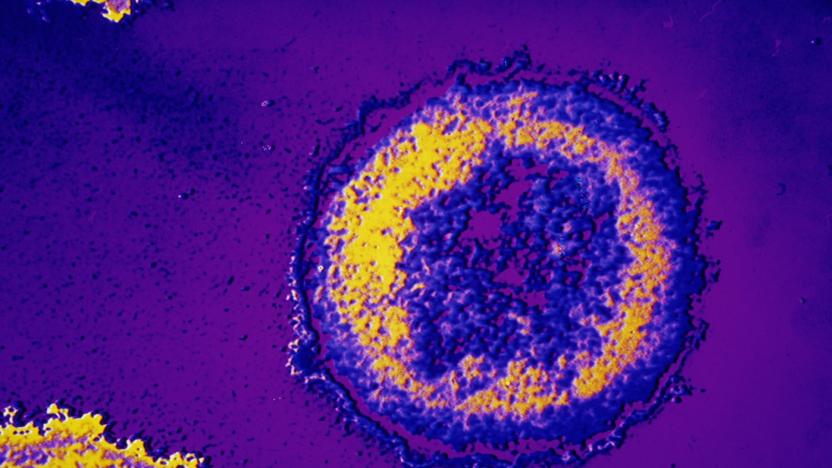
HIV resists attempts to cripple it with gene editing
It's tempting to treat gene editing as a cure-all: surely you can end diseases and viruses by changing or removing the qualities that make them dangerous, right? Well, it's not quite that simple. Researchers trying to cripple HIV by cutting up its DNA (using CRISPR) discovered that some virus samples not only survived the attack, but mutated to resist these incursions. The host T cell actually helped things along by trying to repair the cuts, inserting DNA bases and creating a mutated virus that couldn't be detected by the immune system.









